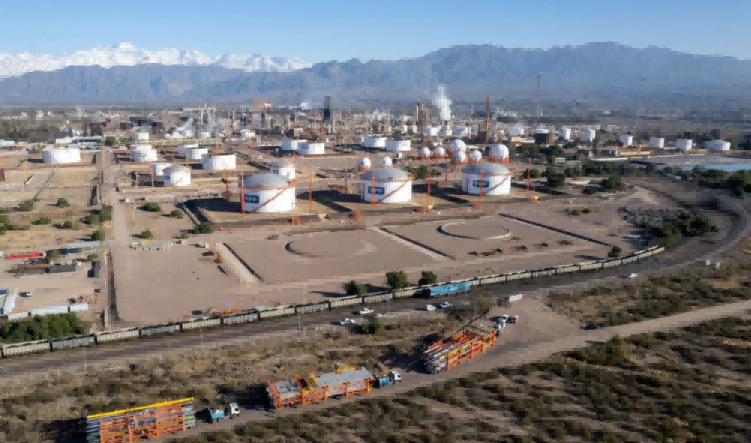Argentina to lift 8% export tax on conventional crude

Argentina's national government said Nov. 18 it will lift the 8% tax on conventional oil exports in a bid to spur production and exports after years of decline.
The first province to benefit from the tax elimination will be Chubut, the biggest source of conventional crude in the country, the Economy Ministry said in a statement.
The exemption will "gradually extend to the rest of the producing provinces," it added.
Chubut Governor Ignacio Torres has been the most vocal about the need to scrap the tax, saying in October that this will revive investment in sustaining heavy oil output from maturing reserves in the southern province, and across the country. This, he added at the time, would improve the competitiveness of conventional oil in export markets, helping to increase exports.
As part of the tax relief, oil producers, through the Chamber of Hydrocarbon Exploration and Production, an industry group, pledged to make the necessary investments to increase production and exports, according to the statement.
This is the latest lifting of export taxes following a move Nov. 17 to scrap the 8% levy on lubricant exports in a bid to spur investment in increasing production and exports.
On X, formerly known as Twitter, Torres called the measure a "historic step," adding that it will "restore predictability" to the oil sector, "a central driver of Chubut's economy."
Torres said the savings for producers will be $370 million per year, which will be reinvested in the industry.
Rebuilding production
Chubut, once the largest source of oil in Argentina, has seen its output decline over the years as reserves mature. Oil production in the province fell 4.4% to 122,700 b/d in September from 128,900 b/d in the year-earlier month, extending a decline to 23% from 160,000 b/d a decade earlier, according to Energy Secretariat data.
As a result, exports of Escalante, a heavy crude produced in the province, tumbled 24% to an average of 26,000 b/d in 2024 from 34,300 b/d in 2021, though recovered to 30,700 b/d in the first eight months of this year, according to the data.
Shifting to Vaca Muerta
The demand for scrapping the tax on conventional crude exports came as more local and international companies shift their focus to Vaca Muerta, one of the world's biggest shale plays. The play has huge growth potential -- only 10% is in development -- and lower costs. It costs $5 million to $10 million to develop each well in Vaca Muerta compared with $20 million to $50 million for conventional wells, according to data from Economía & Energía, a local consulting firm.
The result is that the formation, in northern Patagonia, has gone from starting to be put into production in 2012-13 to producing more than 557,000 b/d in September, or 66% of the country's total crude output of 842,000 b/d that month, according to data from the Energy Secretariat.
On the other hand, conventional oil, much of which is heavy, has tumbled to 279,000 b/d in September from more than 840,000 b/d in the late 1990s, the data showed.
In an Oct. 22 webinar hosted by the Energy Institute of Austral University, Emilio Nadra, chief business officer at Compañía General de Combustibles, a leading conventional oil producer in southern Patagonia, said that the removal of the export tax could boost the return on heavy crude exports by $5/b, encouraging new developments.




